Belle Is A Hero, But The Beast Is An Issue: Is 'Beauty And The Beast' A Feminist Movie?
The live-action remake of Beauty and the Beast is proving to be yet another cinematic triumph, transporting viewers to a fantastical world where anything is possible.
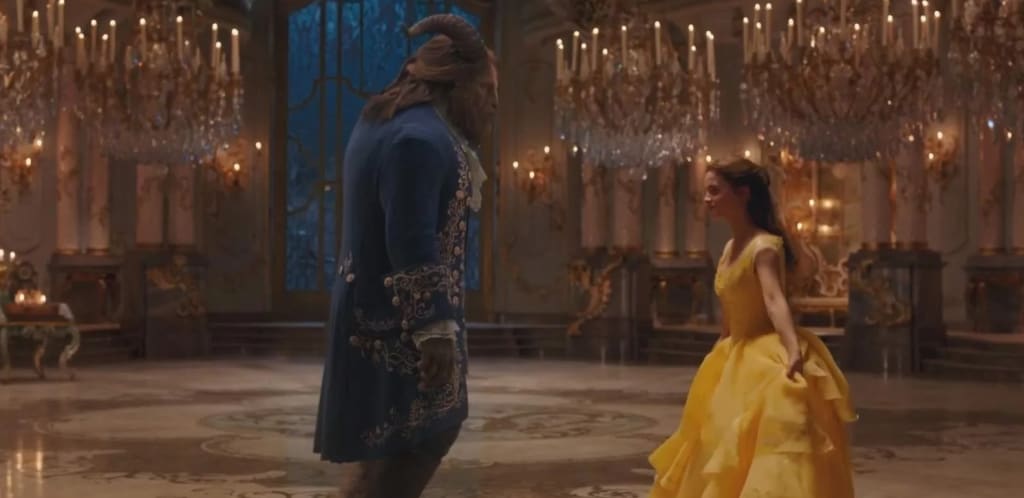
It's official: Disney has done it again. The live-action remake of Beauty and the Beast is proving to be yet another cinematic triumph, transporting viewers to a fantastical world where anything is possible. But dig a little deeper, and you'll find that the film is surprisingly controversial. It contains some pretty intriguing political messages, not least in its complex approach to feminism. So here, let's take a deep-dive into the politics of Beauty and the Beast...
Is Belle A Feminist?
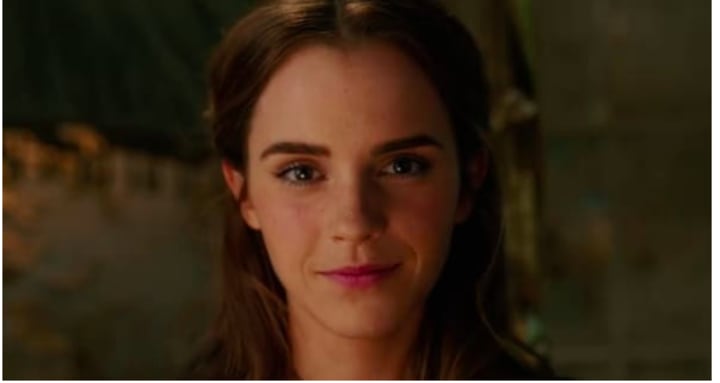
Emma Watson's Belle. [Credit: Disney]
At heart, one of the central issues is that Disney has worked really hard to present Belle as one of their feminist heroes. It's no coincidence that the starring role in the remake has gone to #EmmaWatson, an actress who's noted for her feminism and who's even officially the UN Women Goodwill Ambassador. The problem is that the classic version isn't really all that feminist; although the Belle of the original Beauty and the Beast is strong-willed and fiery, she's fundamentally a prisoner who falls in love with her captor. Many critics view her as a textbook example of Stockholm Syndrome.
Here's the catch, though; in my view, this reading isn't particularly fair. Let's start by taking a step back and asking: what is feminism? Emma Watson herself defines it best:
Feminism isn't about man-hating; it's about a belief that men and women should have equal rights and opportunities. In this context, the Belle of the live-action remake is a remarkable figure. We're still confronted with a story which, on the surface, might not seem all that feminist, but all the way through, it is Belle who chooses. She is the one who chooses to take her father's place; she is the one who drives the Beast, introducing the topic of the library, and pushing the idea of that famous dance. What's more, she is the one who consistently prompts the Beast with the challenge that she has the right to be free; she specifically rejects the notion that she can ever love the Beast while she is his prisoner. This is a subtle rewrite, but the dialogue is vitally important, and it casts Belle as an equal to the Beast, rather than his prisoner and subordinate.
The live-action remake subtly toys with the idea of gender roles, and it does so in a fascinatingly complex way. On the one hand, notice that Belle is still the family member who's expected to be out doing the washing, and the entire village assumes her destiny lies only in her marriage.
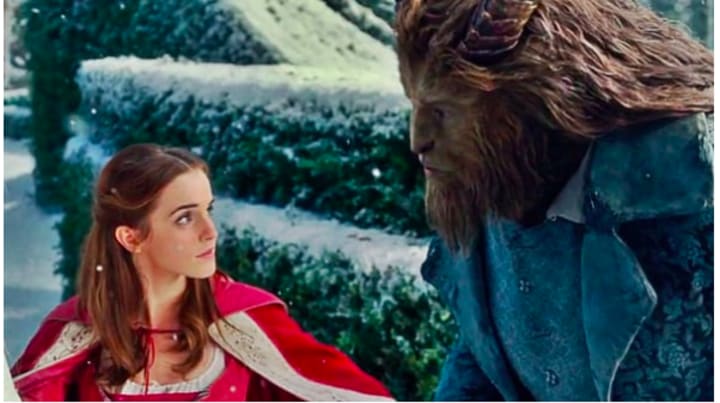
A tender moment. [Credit: Disney]
On the other, though, both the original and the live-action remake take real care to show Belle as someone who challenges the order of things. She won't live inside anybody's "box"; she's a girl who loves to read, who delights in learning, and is characterized by her quick wits and ingenuity. What's more, she clearly longs to pass on this love of learning; in one scene, she teaches a little girl to read, only to be stopped by the outraged villagers. She has challenged their assumptions, and they will not accept that.
The Problem of the Beast
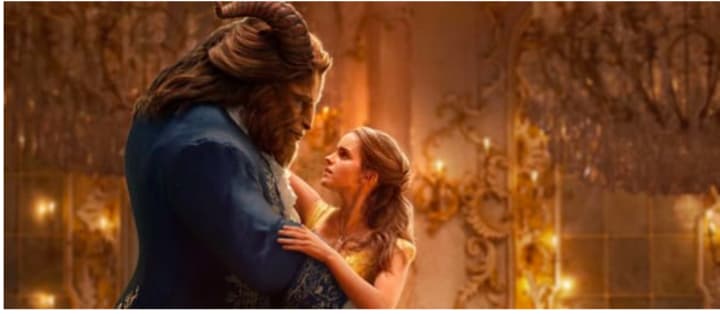
A beautiful moment. [Credit: Disney]
The core problem of Beauty and the Beast, though, doesn't lie in its female protagonist; it lies in the male, specifically in the Beast. The moral of the story is potentially a disturbing one; the idea that all a beastly man needs is the love of the right woman, and he'll be changed. How many relationships have been built on that idea? How many women have stayed with a boyfriend, a lover, or even a husband, in the hopes that their love will change him? How many acts of abuse or misogyny are overlooked because the woman hopes that maybe the perpetrator will change? As Christine Hassier writes in The Huffington Post:
"And often what keeps you coming back is the belief that you can change him. That your love is the magic potion that will save or transform him. You see the hurt little boy under the abuser. You celebrate the dreamer under all the debt. You recognize the pain underneath the addiction. You are attracted to the passion that fuels his drive. You can see all his potential and possibility. You feel that once he sees and experiences how what you value enhances your life, he will want what you want. The wonderful thing about the feminine is that She naturally sees through eyes of compassion and love. Your heart is not logical, it just feels what it feels and all of a sudden you are smitten. And often the smitten can be so intoxicating that the sobering smell of the truth is ignored."
At its heart, Beauty and the Beast is the fairy-tale version of this scenario. It risks inspiring girls all over the world to emulate Belle, to commit to one-sided and even abusive relationships, and to vaguely believe that their love will save or transform the man in question. Thankfully, though, the film also hints at something more...
Balancing This Out
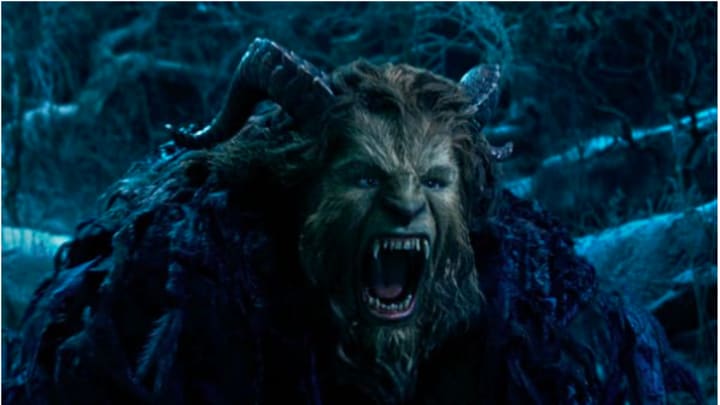
The Beast! [Credit: Disney]
For all the troubling messages about relationships, Beauty and the Beast finds a strange sort of balance, thanks to the character of Gaston. The live-action remake carefully parallels Gaston and the Beast, establishing both as products of their environments. The Beast, we are told, was a spoiled and pampered prince, whose inner goodness was ruined by his upbringing. There's a sense in which the entire village created the Beast, with the residents looking on and tolerating his behavior rather than challenging it.
In the live-action remake, the turning point for the Beast is the moment when he looks beyond himself; when he finally recognizes Belle's need for freedom, and understands that she must go to her father's side. For the first time in his entire life, the Beast chooses the path of self-sacrifice for the sake of another. It is this moment that truly saves him, as he finally learns to put another's needs above his own.
Contrast this with Gaston. The film deliberately parallels Gaston and the Beast; both are products of their environment, both are proud and selfish men, both are prone to fits of rage. Unlike the Beast, though, Gaston never learns to look beyond himself; even when he helps Maurice, it's to serve his own interests.
It's a deliberate contrast, and it gives the film a sense of balance. Only the Beast is redeemed, and it's because of his capacity to love. Just as his relationships doomed him, so his relationships save him. In contrast, Gaston lacks the capacity to love anyone but himself, and as a result, he is beyond redemption. This is a subtle detail, but it's an important one; it redeems the message of the film, reminding us that any meaningful relationship involves self-sacrifice. It is the Beast's willingness to value Belle's good above his own that redeems him, and this neatly subverts the dangerous "redeemed by a woman's love" arc. Ultimately, it is the goodness that lies within the Beast's heart that saves him.
All in all, I view Beauty and the Beast as a feminist film — but subtly so. Both the classic and the remake are tremendously intelligent films, toying with our expectations and presenting surprisingly complex moral messages. Children's films are often mocked, but Beauty and the Beast demonstrates that the very best children's films can carry some very deep messages.
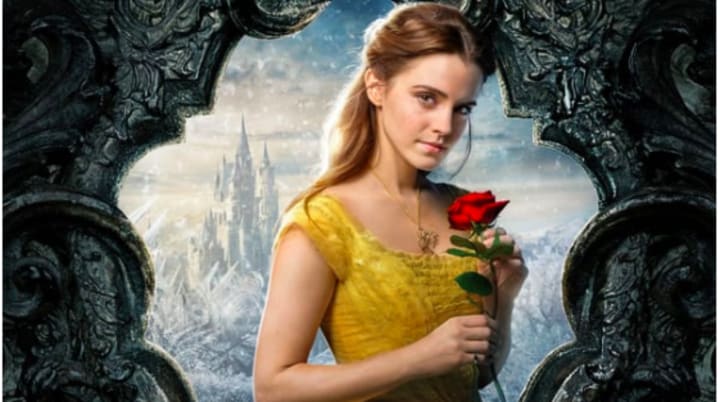
Credit: Disney
(Source: The Huffington Post)
About the Creator
Tom Bacon
A prolific writer and film fan, Tom has a deep love of the superhero genre.


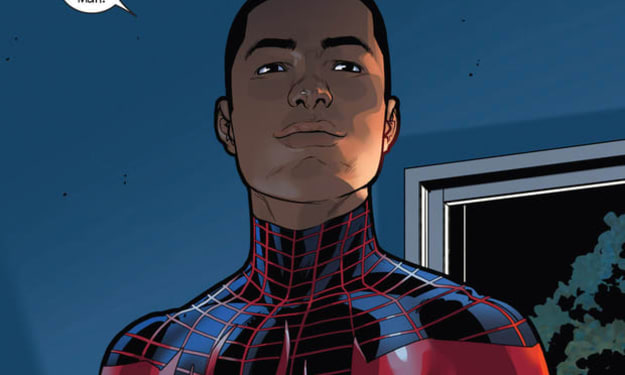



Comments
There are no comments for this story
Be the first to respond and start the conversation.